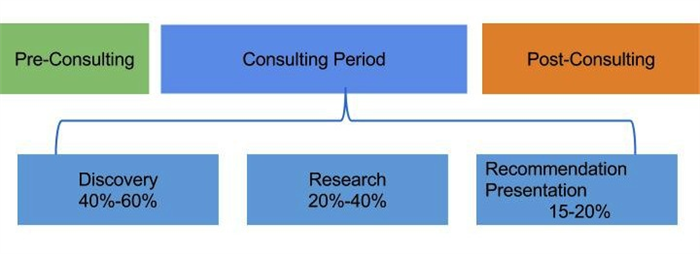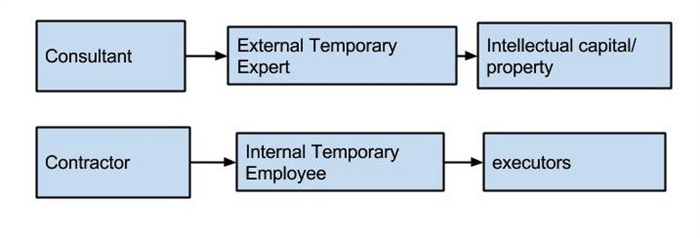Contents
Can a Small Business Consultant Help You Run Your Business?
Running a business can be overwhelming. There are so many factors to consider, decisions to make, and tasks to complete. It’s easy to feel lost or unsure of the best way forward. That’s where a small business consultant can come in.
A small business consultant is an experienced professional who specializes in helping small businesses thrive. They have the knowledge and expertise to guide you through every step of the process, from planning and strategizing to execution and growth.
Whether you’re a new entrepreneur or a seasoned business owner, a consultant can provide valuable insights and advice. They can help you identify areas for improvement, develop effective strategies, and explore opportunities for growth. Their objective is to optimize your business operations and help you achieve your goals.
One of the key benefits of working with a consultant is objectivity. As a business owner, it’s easy to become too emotionally invested in your business, making it difficult to see things objectively. A consultant can provide an external perspective and offer constructive criticism and recommendations without any personal biases.
Additionally, consultants bring a wealth of experience and industry knowledge to the table. They have worked with numerous clients in various industries, giving them a unique insight into what works and what doesn’t. This expertise can save you time and money by helping you avoid common pitfalls and mistakes.
Another advantage of hiring a consultant is that they can provide a fresh set of eyes on your business. They can analyze your current processes, identify inefficiencies, and suggest improvements. This can lead to increased productivity, better resource allocation, and ultimately, improved profitability.
In conclusion, a small business consultant can be an invaluable asset to your business. They can provide objective advice, industry knowledge, and a fresh perspective. Whether you’re just starting out or looking to take your business to the next level, a consultant can help you navigate the challenges and make informed decisions for the overall success of your business.

There comes a point in every business when the owner realizes they need advice and wonders, “Should I hire a consultant?” And, as with most things in life, the answer is, “It depends.”
Whether you’re starting a new company or growing an existing business, hiring the right consultant can be a cost-effective way for your small business to leverage specialized knowledge. Conversely, hiring the wrong consultant can cost you more than money—it can cost you wasted time and energy.
So, the challenge for a small business owner is to understand the role of a consultant and to learn how and when it is cost-effective to hire one.
What does a small business consultant do?
A business consultant is simply an outside expert you hire to solve an internal business problem. A good consultant is a great source of specialized knowledge, skills, experience, and process to improve the client’s condition.
Unlike in-house employees, consultants have independent schedules, may have multiple clients, and are hired on a contract/project basis. Depending on the consulting firm, consultants may work alone or may bring their own team, which typically includes one project manager and two analysts.
[TIP: It is always important to clarify who the primary contact person will be in order to prevent miscommunications.]
A consultant can help with marketing and sales development, business expansion and improvements, and even execution of their ideas and recommendations.
The following is a quick snapshot of the consulting process:

- Pre-consulting: Before starting, you and your expert agree on the terms and conditions.
- Consulting period: This period includes research and a final presentation of recommendations.
- Post-consulting: You can choose to extend your agreement or proceed with implementation on your own.
Why hire small business consultants?
Small business owners hire consultants to bridge knowledge gaps or provide a fresh perspective.
Here are the top three reasons to hire a consultant:
- To find the problem(s): A consultant can identify the source of problems that internal management cannot.
- To create the solution(s): Consultants can help achieve goals that are beyond a company’s capabilities.
- Optimization: Consultants can evaluate and improve various areas of a business to boost productivity.
Where to find consultants
Finding consultants is easy. You can search online directories or ask for recommendations.
Finding the right consultant is the hard part. The "mutual consulting interview" is essential. Trust your gut feeling and ensure the consultant is enthusiastic about your business and can deliver what they promise.
Remember that not every consulting relationship works out. Don’t hesitate to end it if necessary. It’s usually for the best.
Consulting agreements/contracts
Contracts typically last 3-6 months with the option to renew.
TIP: Design your consulting agreement in phases to allow for an amicable separation if needed.
The length of the project is crucial for timely progress and results.
A standard consulting contract includes parameters, responsible parties, payment schedules, deliverables, and deadlines.
How much should you pay?
Price is determined by value. Giving you fee statistics alone isn’t valuable as they can vary greatly.
Consultants vs. contractors
The difference between a consultant and a contractor lies in their value. Understand the distinction before making a choice.

Understanding this key difference will help you get more out of your consultant and save money by knowing when it is best to hire a "contractor."
How to determine a budget
Ask yourself: How much is this worth to me? And: How much can I afford?
Here are three tips to help you determine the right budget:
1. Look at percentages: Determine the right budget for hiring a consultant by setting it as a fixed percentage of your total costs and/or sales. For example, if your monthly sales are $10,000, it is unwise to pay $5,000 per month to a consultant. However, if your monthly sales are $200,000 and you want to grow to $500,000, then $5,000 per month for a 6-month contract with a consultant sounds reasonable.
2. Look at phases: For complex projects with uncertainties, reduce your risk by setting up phases. For example, if you want to redesign your marketing efforts for several product lines, tackle each product line individually instead of all at once. This may lower the cost of hiring a consultant and reduce your overall need for one. If you can learn from their approach to the first product line, you may be able to implement their strategies for the other product lines yourself.
3. Talk to a consultant: Often a consultant can work with you for free to help you determine the right scope and budget for your project. Your preliminary discussions with a consultant are a great way to test the waters and your potential working relationship.
In conclusion
A small business consultant can help you run your business by planning your business strategy and executing it in some cases. I believe in small business consulting because I see its positive effects every day!
However, not all consultants are created equal, and not all businesses or projects are created equal either. Consider why you’re thinking about hiring a consultant, how long you’re willing to wait for results, and how much you can realistically afford to pay for their counsel. Then, find a consultant that you really click with. When all of that comes together, you’ve positioned yourself for success.
Hello!
I’m Andrew Brooks, a seasoned finance consultant from the USA and the mind behind phonenumber247.com.
My career is built on a foundation of helping individuals and businesses thrive financially in an ever-changing economic landscape. At phonenumber247.com, my aim is to demystify the complex world of finance, providing clear, actionable advice that can help you navigate your financial journey with confidence. Whether it’s personal finance management, investment strategies, or understanding the nuances of market dynamics, I’m here to share insights and tools that can propel you towards your financial goals.
Welcome to my digital space, where every piece of advice is a step closer to financial clarity and success!
